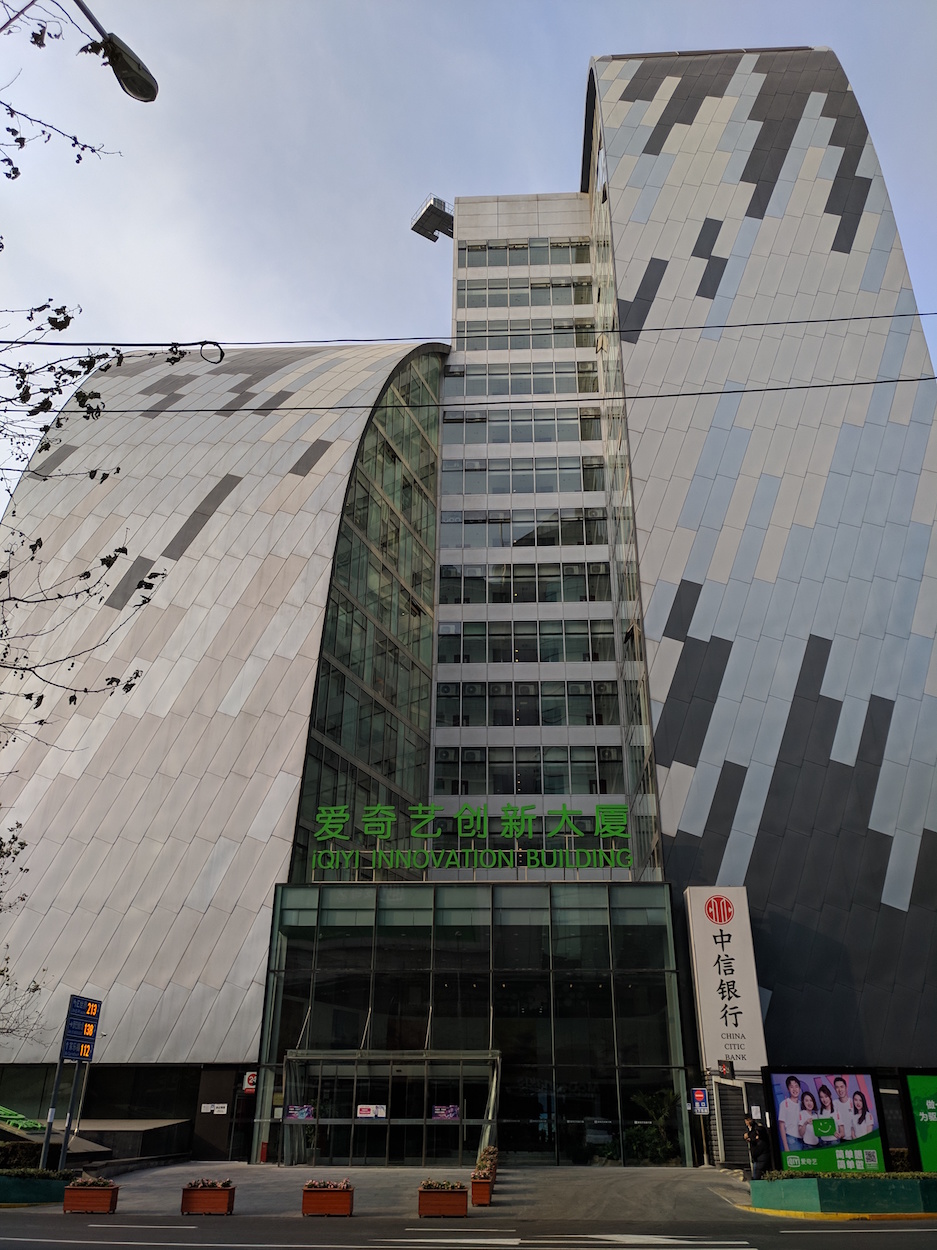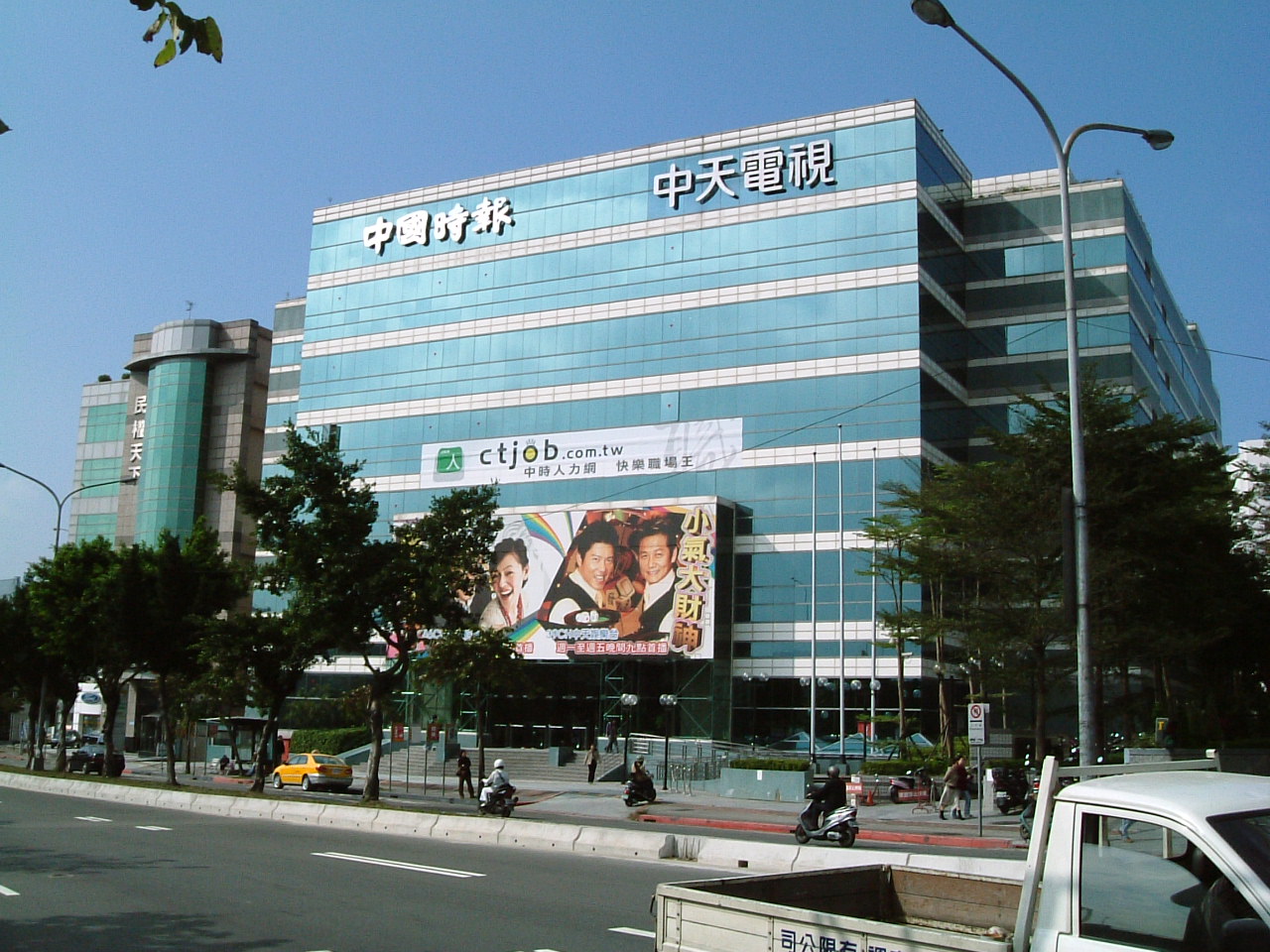by Brian Hioe
語言:
English
Photo Credit: KMT/Facebook
CLAIMS BY THE KMT that the National Communications Council (NCC) intends to censor the Taiwanese Internet through a new draft bill aimed at regulating over-the-top (OTT) providers are ironic. After all, had the Internet existed during the authoritarian period, the Internet would likely have been heavily censored by the KMT, along the lines of the contemporary “Great Firewall of China” that exists in the PRC.
OTT providers are online streaming services such as Netflix, as distinguished from traditional cable or satellite networks. In particular, the Tsai administration has faced challenges regulating Chinese OTT providers in Taiwan, such as iQiyi.com and Tencent Video, which illegally operate in the Taiwanese market. iQiyi.com has six million users in Taiwan, close to 25% of the Taiwanese population, though other statistics report that iQiyi.com has two million users in Taiwan, closer to 8% of the population.
 iQiyi Innovation Building in Beijing. Photo credit: Ashtang775/WikiCommons/CC
iQiyi Innovation Building in Beijing. Photo credit: Ashtang775/WikiCommons/CC
That such OTT providers are illegal has not prevented millions of Taiwanese from using them anyway. As a result, earlier this year, the Taiwanese government deemed Chinese OTT providers illegal, and then moved to ban Taiwanese individuals or companies from acting as intermediaries for Chinese OTT providers.
That being said, the Taiwanese government did not move to ban the use of Chinese OTT providers, seeing as such OTT providers operate through servers in Hong Kong, and removing them entirely from the Internet would raise questions regarding limitations on freedoms of speech. To this extent, one notes that Taiwanese OTT providers are not allowed to operate in China, either.
Concern regarding Chinese OTT providers stems from the fact that they were excluded from regulations governing television and radio, leading to calls from domestic media platforms that OTT providers should face the same regulations that they do. This is also because of broader restrictions regarding Chinese investment in Taiwan, which restrictions on Chinese OTT providers were rolled out alongside.
After broader questions regarding the uniform regulation of television, radio, and streaming, it is feared that Chinese OTT providers could serve as mediums for propagating disinformation in Taiwan. Chinese OTT providers have been known to censor what they considered politically sensitive content in the past, such as abruptly halting the broadcast of television drama Days We Stared at the Sun 2 in 2017 because it is set during the 2017 Sunflower Movement.
New proposed regulations by the NCC would ask OTT providers to register with the government. However, the KMT has claimed that this registration system could be used as a way to politically monitor, blacklist, or take off air OTT providers that do not comply with the wishes of the government, and that the government intends to fine OTT providers that do not register with the government.
In particular, the KMT is leveraging on the recent controversy regarding the NCC deciding not to renew CtiTV’s broadcast license. CtiTV is owned by the Want Want Group, whose CEO Tsai Eng-meng has made no secret of his desire to promote pro-unification views in Taiwan using his media outlet. CtiTV drew controversy last year for reports inflating the crowd count at Han Kuo-yu’s mayoral inauguration and excessive promotion of Han, Tsai’s preferred candidate for the KMT’s 2020 presidential nomination, with the network devoting 70% of airtime to coverage of Han in May 2019.
 CtiTV building in Taipei. Photo credit: 竹筍弟弟/WikiCommons/CC
CtiTV building in Taipei. Photo credit: 竹筍弟弟/WikiCommons/CC
As a result, CtiTV was fined by the NCC to the tune of 10.73 million NT for its false reporting. Reports by the Financial Times and Apple Daily have also stated that other Want Want-owned outlets, such as the China Times, take direct orders and funding from China’s Taiwan Affairs Office.
After CtiTV’s loss of its broadcast license, the network has announced that it will switch to streaming. Consequently, with increased attention on CtiTV’s shift to becoming a streaming platform, one can observe why the KMT has decided to make OTT providers into a battleground issue, seeking to reinforce the perception that the DPP is persecuting networks that are politically critical of it by trying to create the view the DPP is targeting CtiTV with legislation targeting OTT providers.
In truth, such legislation dates from far before CtiTV became an online streaming platform, but the KMT will try to create the perception otherwise. KMT politicians such as president Ma Ying-jeou have also sought to hit back against statements by press watchdogs such as Reporters Without Borders, which stated that CtiTV’s loss of its license was “regrettable” but “not against press freedom”, due to regulatory measures for media being valid.
Indeed, in efforts to combat Chinese disinformation, concerns regarding freedoms of speech and press are valid. However, efforts to regulate the media in order to prevent disinformation circulated by the Chinese state from being used to politically influence Taiwanese will be framed by the KMT as an authoritarian measure. Ironically, the KMT itself justified the restrictions on the media that existed during the authoritarian period under similar premises, but in the present. it benefits from Chinese disinformation, hence its current actions.

